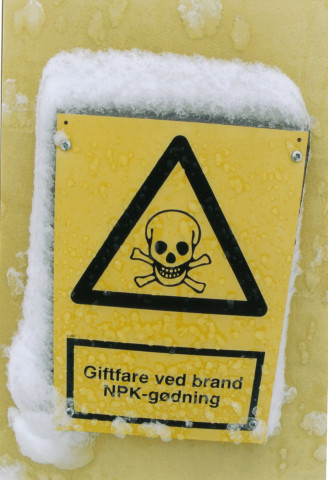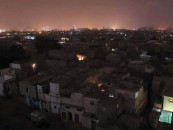‘Hazardous’ factories in Lahore continue operating with impunity
They were issued notices on May 31 and given 7 days to take remedial action.

The Punjab Local Government Ordinance 2001 identified four areas of concern including the illegal establishment of the industries in residential areas and environmental hazards. PHOTO: FILE
The city government had issued notices on May 31 (they were dispatched up till June 6) to the ‘most dangerous’ factories in the city to fix various problems identified in a survey taken in September 2012. They were given a week to comply with safety regulations.
However, no action has been taken yet against the factories that have not complied, despite the lapse of several days past the deadline. Neither has the city government inspected any factory to check the progress of compliance of the notice.
The factories were served a final notice under section 146 D-1 of the Punjab Local Government Ordinance 2001. It identified four areas of concern including the illegal establishment of the industries in residential areas, improper safety measures, insufficient work place with no mandatory open spaces or set backs and environmental hazards.
The notice gave the factories seven days to take action against the irregularities and violations mentioned in the notice.
A survey was conducted by the district office of industries (District Officer for Enterprise and Investment Promotion), civil defence and district office of environment in September last year, in the aftermath of the collapse of an Orient Labs factory in Kharak in March 2012, in which as many as 26 workers had died.
In September 2012, a fire at a shoe factory on Bund Road killed at least 23 workers.
According to the survey, 7,750 factories were found operating in residential areas. Of those, 71 factories were declared ‘most dangerous and hazardous’. The provincial government had planned to relocate the most hazardous factories and ensure the installation of fire safety equipment in other factories.
As many as 52 industrial units were found operating in Samanabad Town, six in Wahga Town, five in Iqbal Town, four in Nishter Town, three in Shalimar Town and one in Gulberg. These industries included chemical, engineering, baking, garments and textile. More than 19 factories were said to be very risky and were told to relocate immediately. However, no action was taken to ensure their relocation. Many factories were also told to either install fire safety equipment or set up emergency exits.
City government officials maintain that moving even the most dangerous factories out of Lahore was not an easy task. They said that the city government was taking a steady approach regarding the matter.
The officers also wanted to avoid court action by the factories. They explained that every time raids were made by the DCO’s office or district administration, factory owners approached the courts to obtain stay orders. They made the DCO a respondent which added to his engagements, they said.
The Staff officer to the DCO, Tariq Zaman, however said that was not the case. The DCO was a respondent in hundreds of cases in the courts. “A few more wouldn’t make much of a difference,” he said.
District Environment Officer Younis Zahid said that notices could not be served to all respondents on May 31. He said that staff at his office was earlier occupied with the dengue fever campaign. The last notice was served more than 24 days ago.
He said that many factory owners had promised to relocate and comply with the notices and had requested some time. “The factories cannot be shifted overnight,”
He said the owners of two such factories had challenged the notice in court. He said his office had eight officers, many of who were busy in other court-related matters. He said the rest were busy in a cattle eviction campaign. “We have to finish one campaign before we start another,” he said.
Punjab Local Government Ordinance 2001
According to section 146 D of the ordinance, "General powers of Inspectors: In case of any serious threat to the public health, safety or welfare or danger to life and property, the Inspector may, in his area of jurisdiction, in addition to imposition of fine or initiating prosecution under this Ordinance: suspend any work; seize the goods; seal the premises; demolish or remove work; and issue directions for taking corrective measures in the time specified by him."



















COMMENTS
Comments are moderated and generally will be posted if they are on-topic and not abusive.
For more information, please see our Comments FAQ